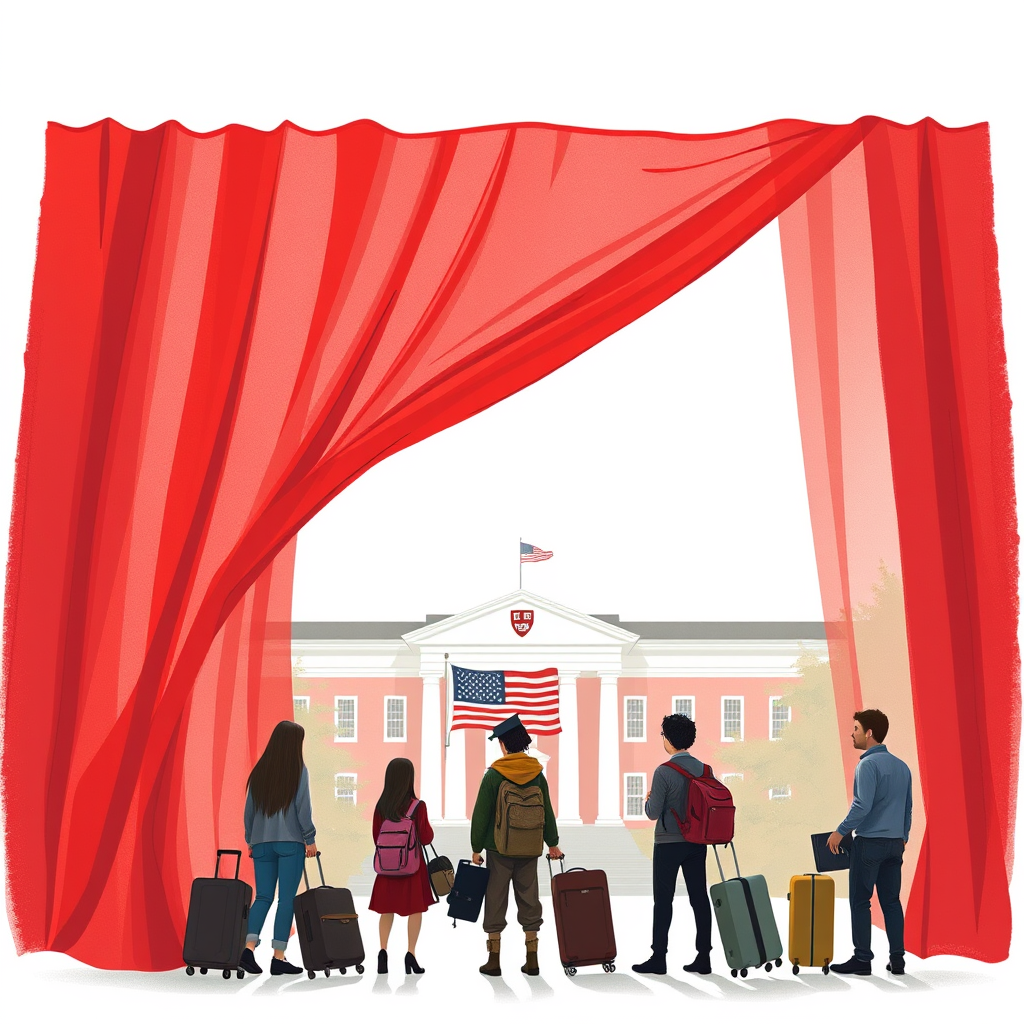Trump Restricts Harvard Access For International Students

The Trump administration has escalated its conflict with Harvard University, implementing a proclamation that effectively restricts entry to the United States for international students seeking to study at the Cambridge institution. This move follows a recent court decision blocking an attempt to revoke Harvard’s ability to host international students, prompting the administration to pursue this new avenue of restriction. The proclamation asserts that Harvard’s conduct renders it an unsuitable destination for foreign students and researchers, citing a range of concerns from alleged crime rate increases and insufficient cooperation with the Department of Homeland Security to foreign financial entanglements, particularly with China, and claims of civil rights violations.
The order suspends the entry of students participating in exchange programs at Harvard, with a 90-day reassessment period before potential extension or expiration after six months. While not impacting international students at other U.S. universities through the Student and Exchange Visitor Program (SEVP), the proclamation directs the Secretary of State to consider revoking the visas of current Harvard students holding F, M, or J visas on a case-by-case basis, though exceptions are permitted for those deemed to be in the national interest.
Harvard, which currently hosts nearly 7,000 international students – representing over a quarter of its student body – has vehemently criticized the proclamation as an illegal retaliatory measure. The university maintains its commitment to protecting the rights of its international students and scholars, emphasizing their vital contribution to the academic mission and the broader benefits they bring to the country. Several universities globally have already offered to accept impacted students.
Financially, Harvard stands to lose significant revenue if forced to accommodate a large-scale transfer of international students, as these students often pay full tuition and associated costs, which can reach upwards of $102,000 annually for some graduate programs.
The administration’s justification for the proclamation is multi-faceted. It alleges a rise in crime on campus, a lack of transparency in reporting disciplinary records of foreign students, and substantial financial ties to foreign governments, including over $150 million in funding from foreign sources. The proclamation also references a report alleging Harvard hosted and trained members of a Chinese paramilitary organization and criticizes the university’s admissions policies following the Supreme Court’s ruling against affirmative action, claiming ongoing discrimination.
This latest action follows a pattern of the Trump administration targeting international students and, specifically, students from China, citing national security concerns. The administration previously sought to cancel thousands of international student visas before reversing course.
This situation is deeply concerning. While legitimate security concerns warrant scrutiny, this proclamation appears to be a disproportionate response fueled by political animosity towards Harvard and a broader attempt to restrict international academic exchange. The administration’s claims regarding crime and civil rights violations seem largely unsubstantiated and selectively presented to justify a pre-determined outcome. Restricting access to education for international students not only harms those individuals but also undermines the United States’ position as a global leader in research and innovation. The chilling effect this action will have on attracting top talent from around the world is significant and will likely have long-term consequences for American competitiveness. The selective targeting of a single university, based on what appears to be politically motivated grievances, sets a dangerous precedent for academic freedom and international collaboration.